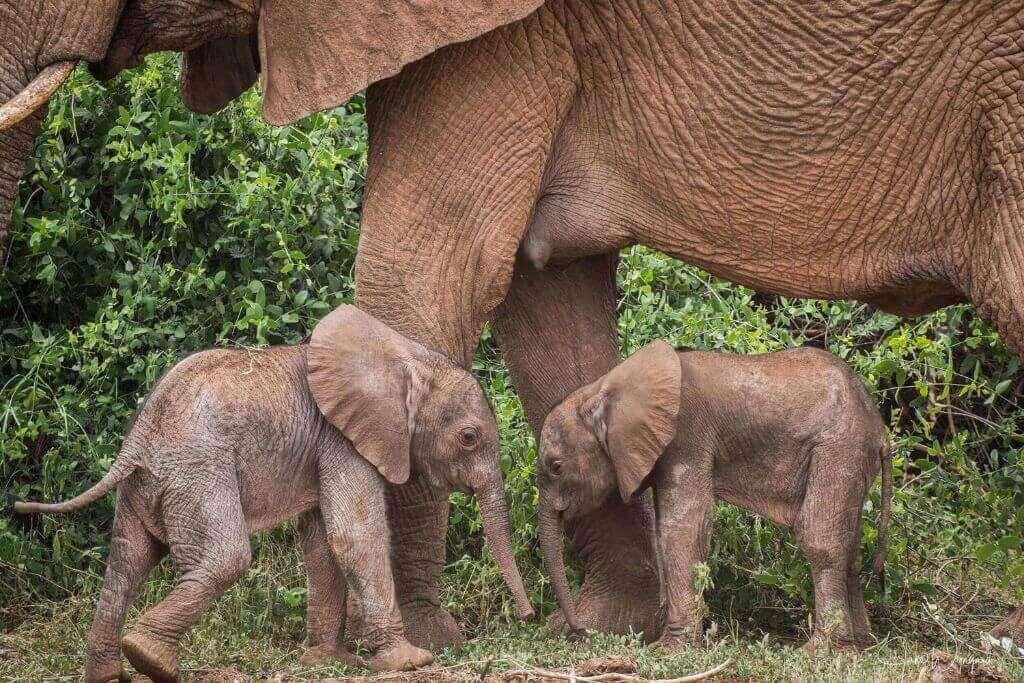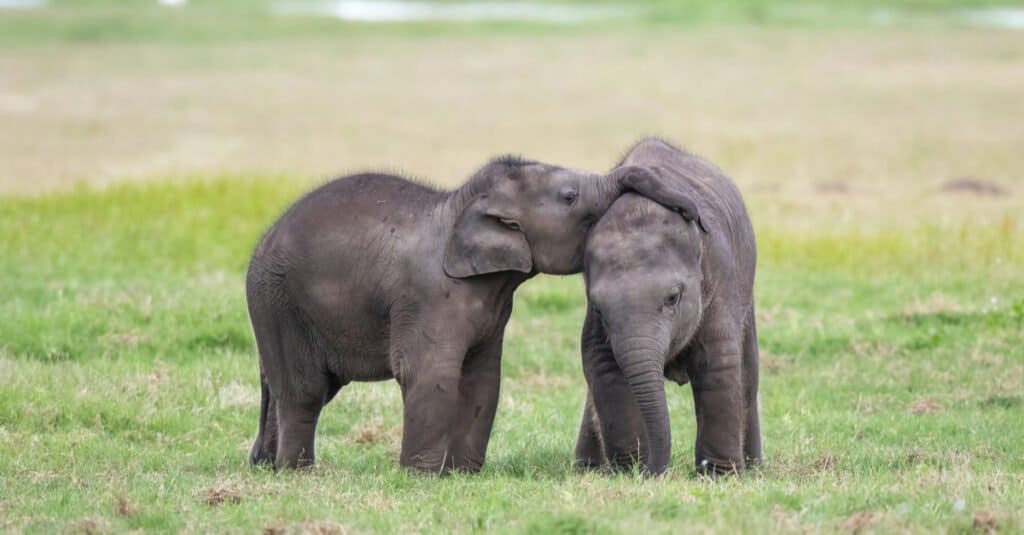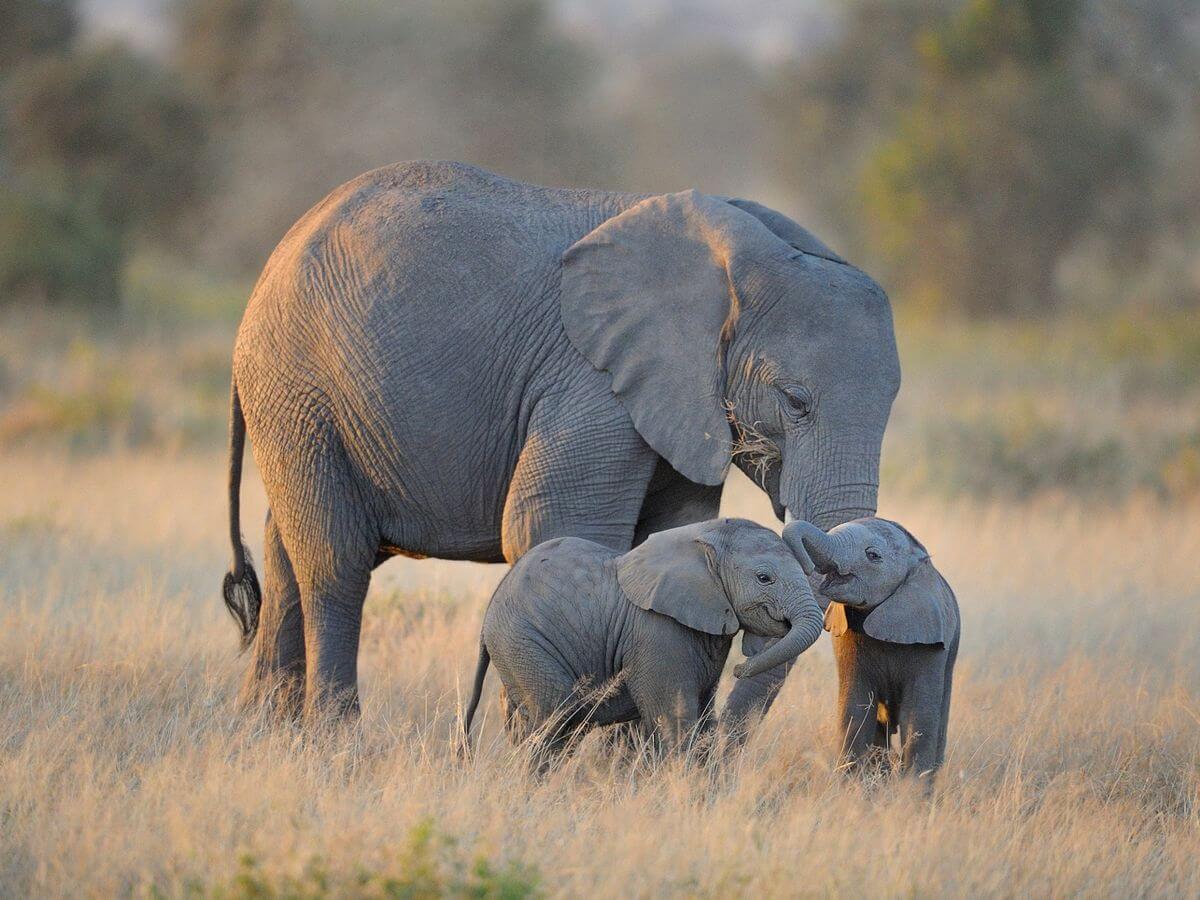In a rare occurrence among endangered species, twin African elephants were born in Kenya’s north. Recently, elephant twins who had a slim chance of survival have been discovered alive and well in Kenya.
Rare Elephant Twins Born In Kenya
Conservationists describe the current situation as unique. On Thursday, it was announced that an elephant in Kenya’s north had given birth to twins. Twins account for approximately one percent of births among endangered species.
The African twins were born to a mother named Bora and were first spotted by lucky tourists on a safari drive in Samburu reserve over the weekend, according to the conservation group Save the Elephants.
The calves were seen acclimating to their savannah surroundings with their adoring mother and an older sibling. However, the next few days will be critical; many twin mothers do not have enough milk to support their calves.
“We’re all crossing our fingers for their survival,” Save the Elephants founder Iain Douglas-Hamilton said.
The births brought joy to the country, which has seen an increase in the elephant population. Kenya has an estimated 36,280 elephants, according to the country’s first-ever national wildlife census, which was conducted last year.
Do you know Why Are African Elephants Endangered Now?
Good News: Elephant Twins That Had Little Chance Of Surviving Found Alive
Elephant twins account for less than 1% of all births. A mother usually does not have enough milk for two calves, so having two at once can be stressful. Usually, one, if not both, of them dies. The last twins born in the area were in 2006, and both died soon after birth.
When the twins were discovered, researchers from the elephant conservation organization Save the Elephants knew their chances of survival were slim.

The twins were not seen for months after the initial sighting, leaving conservationists to speculate about their fate. However, the lion protection project Ewaso Lions discovered them alive and well on March 19 and 20.
Save the Elephants said in a statement that their survival is even more remarkable given the region’s severe drought. Because of climate change, Kenya’s north has received less than 30% of its normal rainfall in recent years.
Save the Elephants’ Jane Wynyard told Newsweek that the twins were spotted in a remote part of northern Kenya, outside the Samburu reserve, and appeared “healthy and well.” Both elephants appear to have gained weight.
Save the Elephants has been following the Winds II elephant herd for several years. Bora, the twins’ mother, has likely raised a calf before, giving her the experience to keep them alive.
David Daballen, Save the Elephants’ Head of Field Operations, called it “incredible news.”
“Bora has managed to feed and keep the babies alive despite the terrible drought. Twin elephants are extremely rare, so we are overjoyed with this news “He stated. “It just goes to show how strong elephants are and what excellent mothers they are. We are excited to follow their progress.”

According to Wynyard, the twins will continue to rely on their mother’s milk for at least another two years. “They will then be weaned and begin foraging for themselves. The young female calf will spend the rest of her life with her mother and the Winds herd “Wynyard explained. “Around 12 to 15 years old, the male will disperse from the herd and spend the rest of his life as a solitary bull.”
Save the Elephants hopes to track the twins’ progress, but the herd lacks tracking collars, making them difficult to locate in the vast terrain.
The Samburu National Reserve is a protected area, and researchers hope the herd will return once the rains arrive in April. Once that is completed, they hope to fit one of the elephants with a tracking collar, allowing them to keep an eye on the twins.
Read more Look Back At The Incredible Images Of A Much-Loved-50-Year-Old Elephant In Kenya
